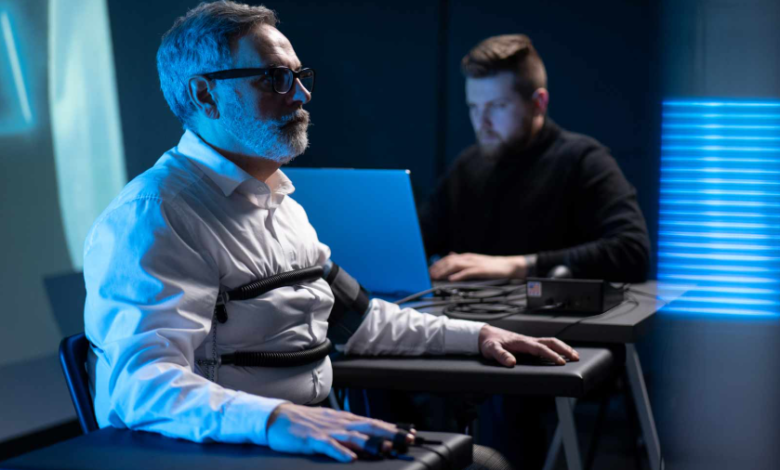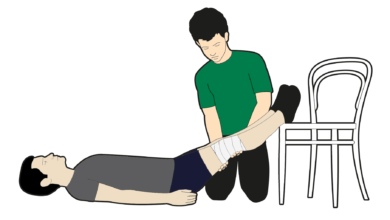Are Polygraph Tests Legal in North Carolina? Full Guide

Introduction
When people hear the term polygraph test or lie detector test, they often think of a courtroom drama where someone’s guilt or innocence hinges on the results. In reality, polygraph tests in North Carolina exist in a much more complicated legal space. Some individuals assume that these tests are banned completely, while others believe they can be used freely in court or during job applications. The truth lies somewhere in between. Understanding the legal framework surrounding polygraph tests in North Carolina requires a close look at both federal and state laws, as well as the different ways these tests are applied in practice.
What Is a Polygraph Test?
A polygraph, or lie detector test, is a device that records physiological responses such as breathing, blood pressure, heart rate, and skin conductivity. The examiner then interprets these signals to decide whether they indicate truthfulness or deception. In North Carolina, as in other states, polygraph tests are sometimes requested in criminal investigations, employment screenings, and even personal disputes. However, the legality of using these results differs depending on the situation, which is why clear guidelines are essential.
Federal Laws That Affect North Carolina
One of the most important pieces of legislation affecting polygraph tests in North Carolina is the Employee Polygraph Protection Act (EPPA). This federal law, enacted in 1988, prohibits most private employers from requiring or requesting that employees or job applicants take a lie detector test. The goal was to protect workers from unfair or intrusive practices, as polygraph results are not always accurate. However, the EPPA does not apply to government employers or certain industries that handle sensitive materials, such as security services or pharmaceutical companies. As a result, North Carolina businesses must follow this law, with only limited exceptions allowed.
State-Level Laws in North Carolina
At the state level, North Carolina does not have a blanket ban on polygraph tests, but its courts are cautious about their use. Generally, the results of a polygraph test are not admissible as evidence in criminal or civil trials unless both parties agree. This rule reflects skepticism about the scientific reliability of polygraphs. Still, the tests may be used as investigative tools by police officers, attorneys, or private investigators. In other words, polygraph tests in North Carolina are legal in some contexts, but their role in official proceedings remains tightly restricted.
See also: Chic and Classy: Ladies Dress Looks for 2025
Use of Polygraph Tests in Criminal Investigations
Law enforcement agencies in North Carolina sometimes use polygraph tests during investigations. A suspect may be asked to take a lie detector test to support their version of events. Similarly, a witness or victim might take one to add credibility to their statement. However, no one can be forced to take a polygraph test without consent, and the results typically cannot be introduced in court as definitive evidence. Instead, investigators may use the outcome as a tool to guide further questioning or to assess the consistency of a person’s story. This limited but practical use explains why polygraphs remain a part of North Carolina’s justice system despite their restrictions.
Polygraphs in Employment Situations
The question of whether employers in North Carolina can require a polygraph test depends largely on the EPPA. Most employers cannot legally demand that workers take a lie detector test, whether during hiring or while on the job. However, exceptions exist. For example, companies providing security services or handling controlled substances may have the right to use polygraph testing under specific conditions. Even then, employees are given certain protections, such as being informed of their rights and having the option to refuse without automatic punishment. This legal framework ensures that polygraph tests in the workplace are used sparingly and fairly.
Admissibility in Courtrooms
In North Carolina courtrooms, polygraph test results face significant barriers to admissibility. Courts generally reject them as evidence because the scientific community has not reached consensus on their reliability. The fear is that jurors might place too much weight on polygraph results, viewing them as definitive proof when they are not. That said, there are exceptions. In rare cases, if both the prosecution and defense agree, a polygraph result might be introduced into evidence. Even then, judges have the authority to limit or reject its use if they believe it could unfairly influence the outcome.
The Debate Over Accuracy
The ongoing legal restrictions in North Carolina are closely tied to debates about the accuracy of polygraph tests. Supporters argue that polygraphs are useful for detecting deception when administered by trained professionals. Critics counter that nervousness, anxiety, or medical conditions can create misleading results. Because the stakes in criminal and civil cases are so high, courts prefer to err on the side of caution by excluding polygraph evidence. This cautious approach reflects the balance between recognizing the tool’s potential and acknowledging its scientific weaknesses.
Voluntary Polygraph Testing
In North Carolina, people often choose to take polygraph tests voluntarily, even when not required by law. For instance, someone accused of a crime may undergo a lie detector test to demonstrate their truthfulness to investigators or the public. Similarly, in personal disputes—such as allegations of infidelity or financial dishonesty—people sometimes turn to polygraph examiners for reassurance. While the results may not carry legal weight in court, they can influence negotiations, settlements, or personal decisions. Voluntary testing is therefore a major part of the polygraph landscape in North Carolina.
Who Can Administer a Polygraph Test in North Carolina?
Not just anyone can administer a polygraph test in the state. Professional examiners are usually certified and trained to follow strict protocols. This training ensures that the questions are fair, the equipment is used correctly, and the results are interpreted responsibly. Many examiners in North Carolina come from law enforcement or investigative backgrounds, giving them experience in high-stakes questioning. Because the credibility of a polygraph test depends heavily on the examiner’s skills, choosing a qualified professional is crucial for anyone considering this option.
Public Attitudes Toward Polygraph Tests
Public opinion in North Carolina about polygraph tests is mixed. Some people trust them and see them as strong indicators of honesty. Others are skeptical, pointing to the legal limitations as proof that the tests are unreliable. This divide is not unique to North Carolina; it reflects a national conversation about whether polygraph technology has a legitimate place in law and employment. The perception of polygraphs often depends on personal experiences, media portrayals, and the stakes involved in the situation.
Future of Polygraph Laws in North Carolina
Looking ahead, the legal status of polygraph tests in North Carolina may continue to evolve. Advances in science and technology could lead to new methods of lie detection that are more reliable than traditional polygraphs. If that happens, lawmakers and courts may revisit the rules governing their use. For now, however, the cautious approach remains in place: polygraph tests are legal under certain conditions but restricted when it comes to courtroom evidence and employer requirements.
Location North Carolina
- Charlotte – 2015 Ayrsley Town Blvd, Charlotte, NC 28273
- Mooresville – 106 Langtree Village Drive, Mooresville, NC 28117
- Greensboro – 717 Green Valley Road, Greensboro, NC 27408
- Durham – 2530 Meridian Pkwy, Durham, NC 27713
- Raleigh – 4242 Six Forks Rd, Raleigh, NC 27609
Conclusion
polygraph tests in North Carolina? The answer is yes, but with many qualifications. They can be used in investigations, in certain employment contexts, and in personal matters, but they are rarely admissible in court. Federal and state laws provide strict guidelines that protect individuals from unfair use while still allowing the polygraph to serve as a tool in specific situations. For anyone in North Carolina considering a polygraph test, understanding these rules is essential. The lie detector test can offer insights, but it is not a guaranteed path to truth or justice. By knowing where polygraph tests stand legally, individuals and organizations can make informed choices about whether and how to use them.



